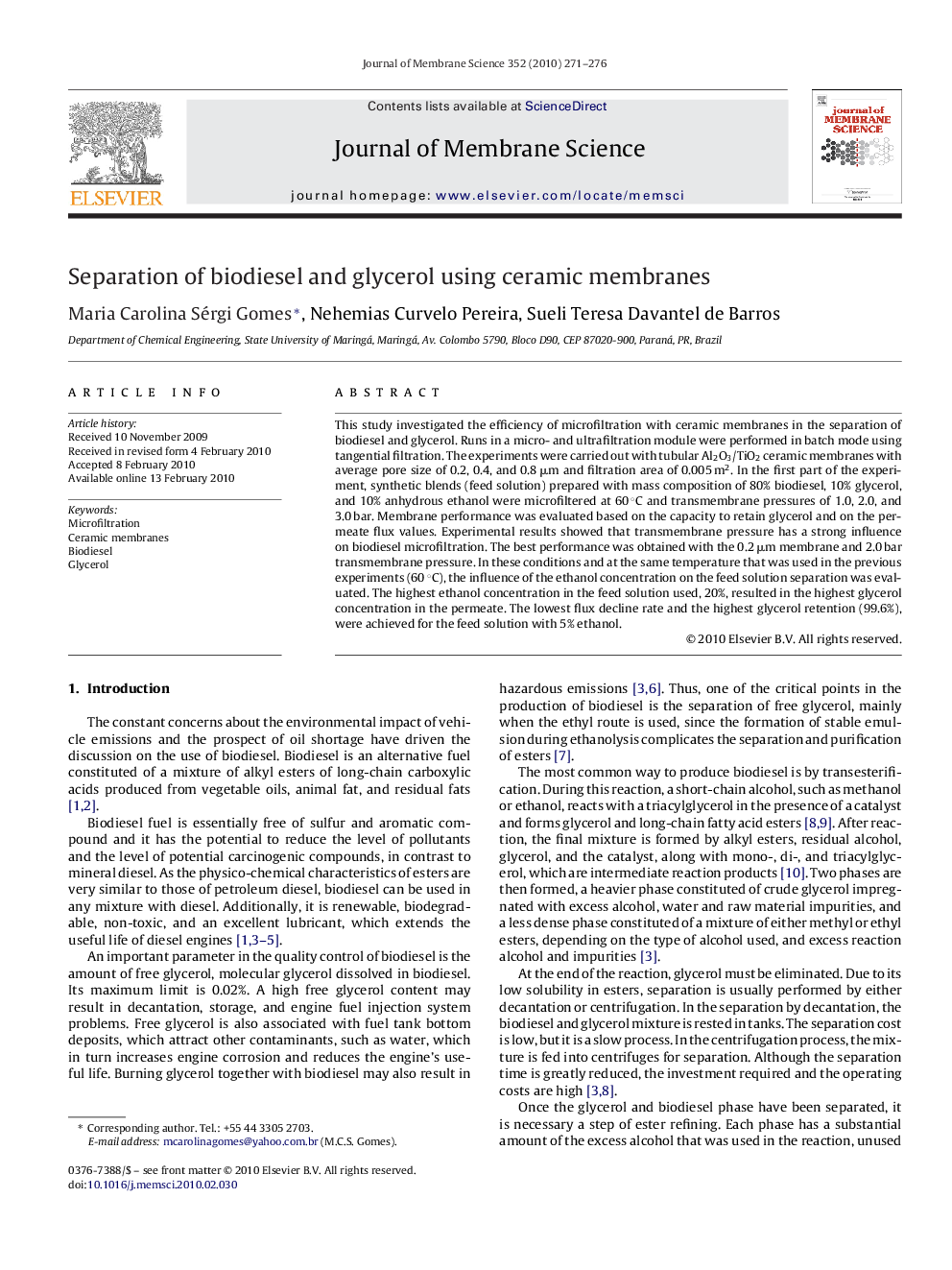| Article ID | Journal | Published Year | Pages | File Type |
|---|---|---|---|---|
| 636571 | Journal of Membrane Science | 2010 | 6 Pages |
This study investigated the efficiency of microfiltration with ceramic membranes in the separation of biodiesel and glycerol. Runs in a micro- and ultrafiltration module were performed in batch mode using tangential filtration. The experiments were carried out with tubular Al2O3/TiO2 ceramic membranes with average pore size of 0.2, 0.4, and 0.8 μm and filtration area of 0.005 m2. In the first part of the experiment, synthetic blends (feed solution) prepared with mass composition of 80% biodiesel, 10% glycerol, and 10% anhydrous ethanol were microfiltered at 60 °C and transmembrane pressures of 1.0, 2.0, and 3.0 bar. Membrane performance was evaluated based on the capacity to retain glycerol and on the permeate flux values. Experimental results showed that transmembrane pressure has a strong influence on biodiesel microfiltration. The best performance was obtained with the 0.2 μm membrane and 2.0 bar transmembrane pressure. In these conditions and at the same temperature that was used in the previous experiments (60 °C), the influence of the ethanol concentration on the feed solution separation was evaluated. The highest ethanol concentration in the feed solution used, 20%, resulted in the highest glycerol concentration in the permeate. The lowest flux decline rate and the highest glycerol retention (99.6%), were achieved for the feed solution with 5% ethanol.
